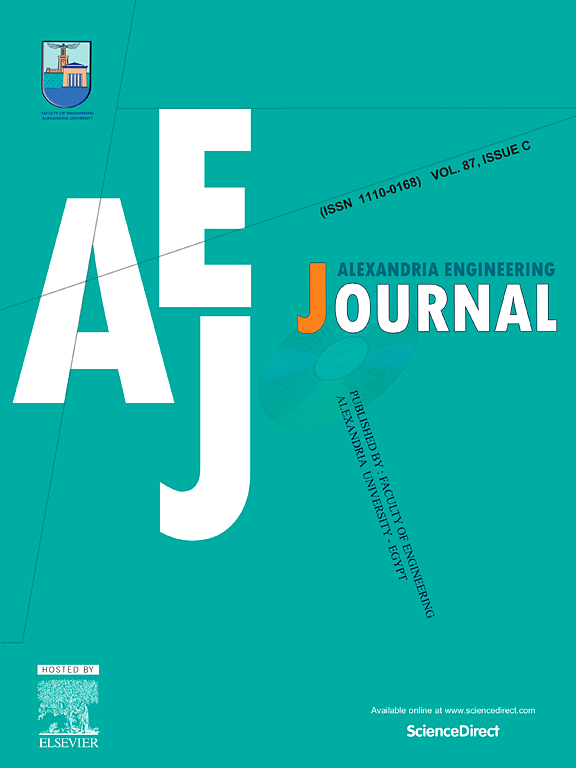FLSecure: A hybrid framework with blockchain and multi-TEE parallel execution for secure federated learnings
IF 6.2
2区 工程技术
Q1 ENGINEERING, MULTIDISCIPLINARY
引用次数: 0
Abstract
Federated Learning (FL) enables decentralized model training on private data but faces challenges such as single points of failure, adversarial attacks, and limited scalability. While blockchain-based FL frameworks address some of these issues by decentralizing model aggregation, they often suffer from computational inefficiencies and insufficient confidentiality during model updates. This paper presents FLSecure, a hybrid framework that integrates blockchain and Trusted Execution Environments (TEEs) to improve the privacy, security, and scalability of FL systems. By utilizing TEEs, FLSecure ensures secure aggregation of local model updates within isolated hardware environments, preventing unauthorized access and ensuring data integrity. Blockchain provides decentralized consensus and a tamper-proof audit trail, removing the dependency on centralized servers and enhancing transparency. FLSecure introduces a multi-TEE parallel execution strategy, which partitions global aggregation tasks into subtasks and distributes them across multiple TEEs for concurrent execution. This strategy mitigates TEE memory constraints and blockchain transaction bottlenecks, thereby enhancing scalability, reducing computational overhead, and supporting large-scale deployments. Experimental results demonstrate that FLSecure outperforms existing privacy-preserving FL frameworks in computational efficiency and overhead reduction. Furthermore, it exhibits robust resilience against adversarial threats, including backdoor and Byzantine attacks, offering a comprehensive solution to the security and scalability challenges in federated learning.
联合学习(Federated Learning,FL)可在私有数据上实现去中心化的模型训练,但面临着单点故障、对抗性攻击和可扩展性有限等挑战。虽然基于区块链的联合学习框架通过去中心化模型聚合解决了其中一些问题,但它们在模型更新过程中往往存在计算效率低下和保密性不足的问题。本文介绍的 FLSecure 是一种混合框架,它集成了区块链和可信执行环境(TEE),可提高 FL 系统的隐私性、安全性和可扩展性。通过利用 TEE,FLSecure 可确保在隔离的硬件环境中安全聚合本地模型更新,防止未经授权的访问并确保数据完整性。区块链提供去中心化共识和防篡改审计跟踪,消除了对中心化服务器的依赖,提高了透明度。FLSecure 引入了多 TEE 并行执行策略,该策略将全局聚合任务划分为子任务,并将它们分配到多个 TEE 上并发执行。该策略缓解了 TEE 内存限制和区块链交易瓶颈,从而提高了可扩展性,降低了计算开销,并支持大规模部署。实验结果表明,FLSecure 在计算效率和减少开销方面优于现有的隐私保护 FL 框架。此外,它还对包括后门攻击和拜占庭攻击在内的对抗性威胁表现出强大的复原力,为联合学习中的安全性和可扩展性挑战提供了全面的解决方案。
本文章由计算机程序翻译,如有差异,请以英文原文为准。
求助全文
约1分钟内获得全文
求助全文
来源期刊

alexandria engineering journal
Engineering-General Engineering
CiteScore
11.20
自引率
4.40%
发文量
1015
审稿时长
43 days
期刊介绍:
Alexandria Engineering Journal is an international journal devoted to publishing high quality papers in the field of engineering and applied science. Alexandria Engineering Journal is cited in the Engineering Information Services (EIS) and the Chemical Abstracts (CA). The papers published in Alexandria Engineering Journal are grouped into five sections, according to the following classification:
• Mechanical, Production, Marine and Textile Engineering
• Electrical Engineering, Computer Science and Nuclear Engineering
• Civil and Architecture Engineering
• Chemical Engineering and Applied Sciences
• Environmental Engineering
 求助内容:
求助内容: 应助结果提醒方式:
应助结果提醒方式:


